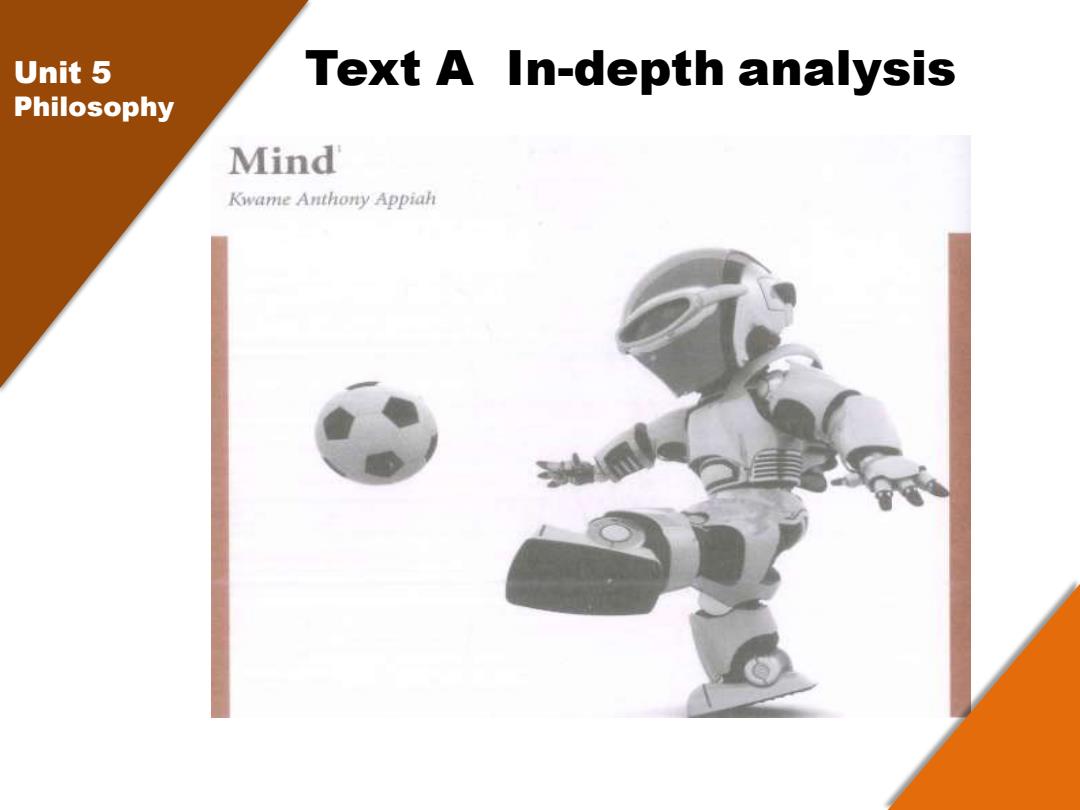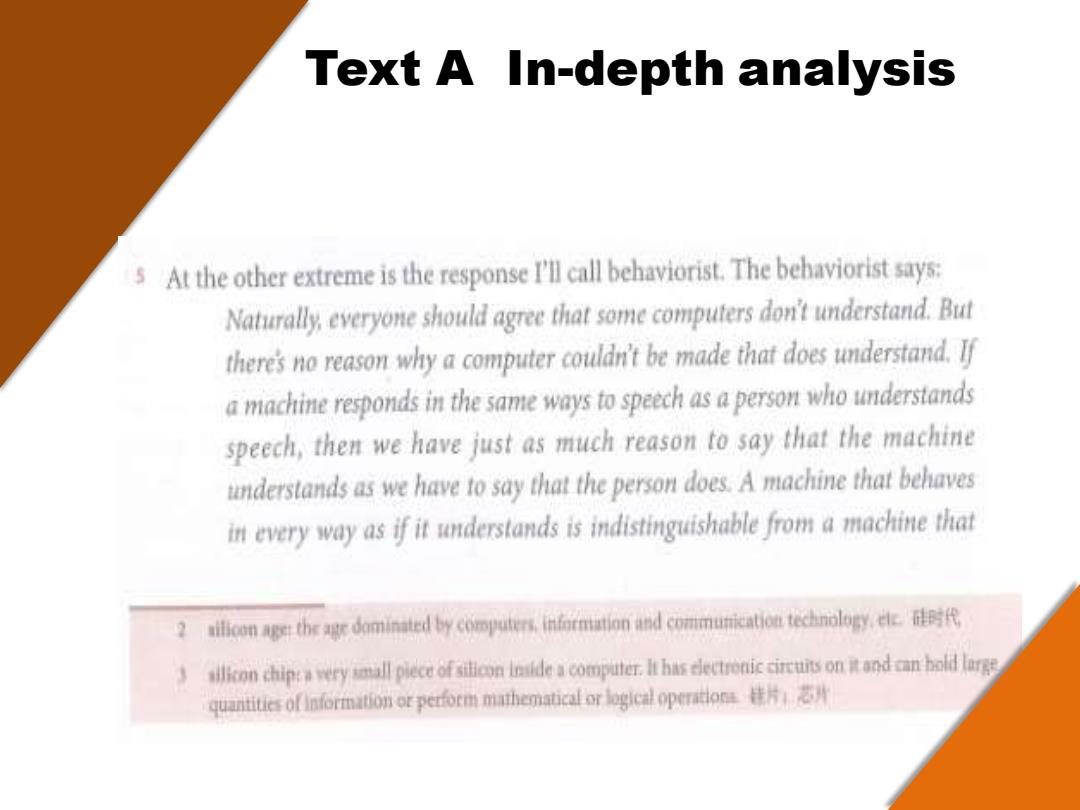
Unit 5 Text A In-depth analysis Philosophy Mind Kwame Anthony Appiah
Unit 5 Text A In-depth analysis Philosophy

Text A In-depth analysis Inomoviesomputers playastringo ome talk in synthesized voices others write astream of words onasreSome manage spaceships others,the "brainsofrobots,manage their owodsPeopenverse with them,are derstod by them,exhangentnand greeting with them.Much ofths sstill scie ficio.But real omputersavise lawyersn relevant as,doctors n diagnoses,engneers on the state of tomic reactors Both the fantasy and the fact ouhaveasdograndparents They might have thouth this 1 Thtxtrm the bookybwe Anthony Appiah in 2003
Unit 5 Text A In-depth analysis Philosophy

Text A In-depth analysis only be achieved by magic.Yet most of us are getting used to it,taking the silicon age for granted. 2 Still.a suspicion remains.We human beings have always thought of ourselves as special.We all assume some contrast between the world of material things and the world of spiritual things.If the computer really is a"material mind,then not only must we rethink this distinction,but we have broken it with our own creations.We should be careful to avoid such an important conclusion until we have really thought it through.However natural it seems to take it for granted that computers can think and act,then,we shouldn't just assume it.In philosophy we often find that what we normally take for granted-thecommon sense point of view-gets in the way of a proper understanding of the issues.So let's see if the way I spoke about computers in the first paragraph is accurate
Unit 5 Text A In-depth analysis Philosophy

Text A In-depth analysis 3 I said that they talk But do they really talk in the sense that people do?It isn't enough to say that they produce something that sounds like speech.Tape recorders do that. but they don't talk.When people talk they mean something by what they say.To mean something,they need to be able to understand sentences.Now I also said that computers understand what we say to them.But do they really?The sounds of our speech are turned into electrical impulses.The impulses pass through the circuits of the machine.And that causes the speech synthesizer to produce sounds.It may be very clever to design a machine that does this,but what evidence do we have that the machine understands? 4 Well.could a machine understand?There are two obvious responses to this question. The first response I'll call mentalist,for the sake of a label.It's the response you make if you think that understanding what people say involves having a mind.The mentalist says: Computers can't really understand anything.To understand they would have to have conscious minds.But we made them from silicon chips and we programmed them.We didn't give them conscious minds.So we know they don't have them
Unit 5 Text A In-depth analysis Philosophy

Text A In-depth analysis s At the other extreme is the response I'll call behaviorist.The behaviorist says: Naturally everyone should agree that some computers don't understand.But theresnores whyacomputercounbe made that does understand.If amachine responds in the same ways to speech as a person who understands speech,then we have just as much reason to say that the machine understands as we have to say that the person does.A machine that behaves in every way as if it understands is indistinguishable from a machine that 2 ithedomned bycomusnnndcommuotechnology chip:rypecefdeomuterhaseonandag quatoormton perorm mathematcor ogical opero佳片,老升
Unit 5 Text A In-depth analysis Philosophy